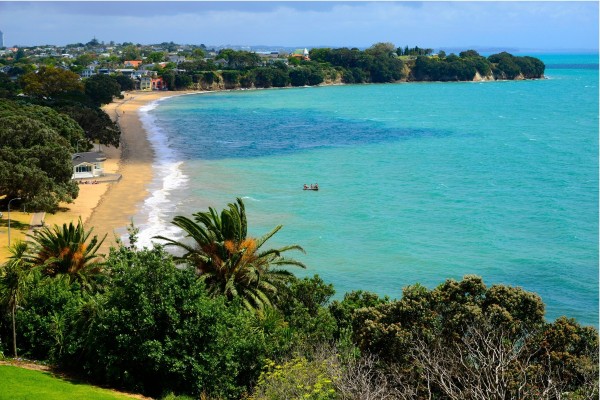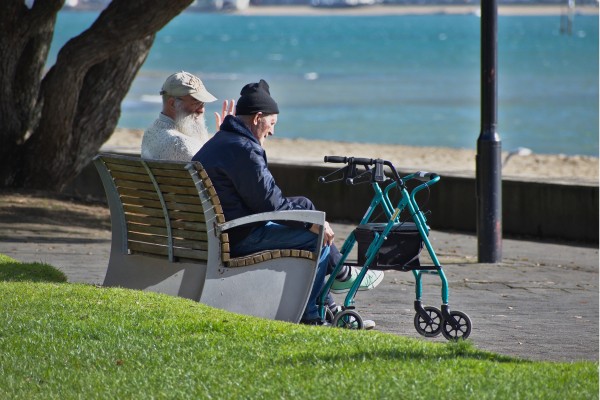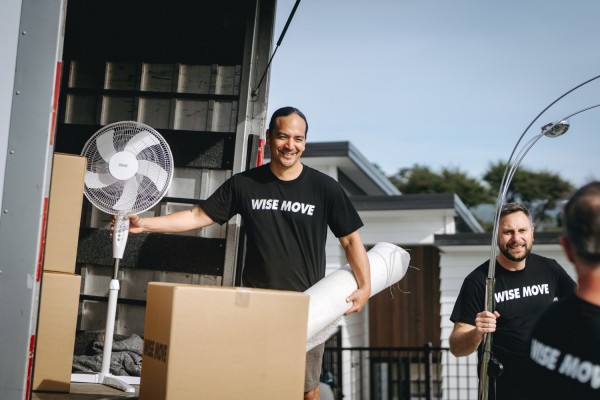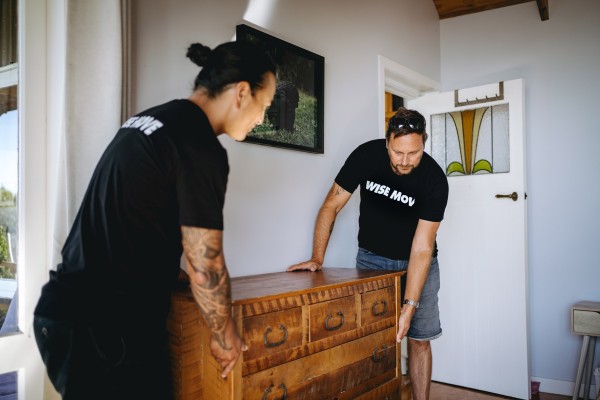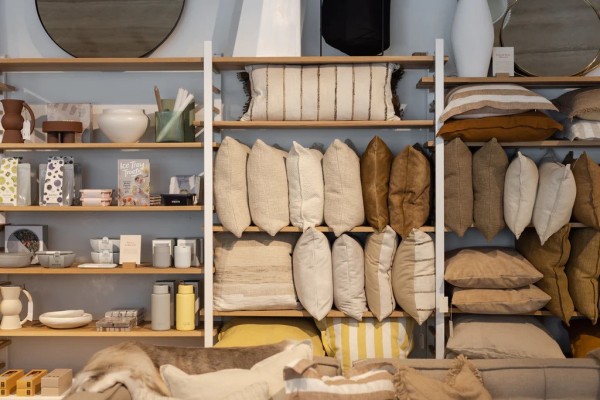How much do you need to earn to live comfortably in Wellington? [2025]
![How much do you need to earn to live comfortably in Wellington? [2025] How much do you need to earn to live comfortably in Wellington? [2025]](https://cdn.wisemove.co.nz/image/blog/c89e6b6f301288300c2a5891d016f9da.jpeg)
If you’re considering moving to Wellington, you may have wondered how much money you’ll need to live comfortably in New Zealand’s capital city. Some people can get by on $60,000 per year, while others may need $150,000 or more to live comfortably and service a mortgage. To learn more about your budgeting needs in this area, check out this guide on how much money you need to live comfortably in Wellington.
How much rent will I need to pay in Wellington?
On average, rent in Wellington is around $895 for a three-bedroom home in the central city. Assuming you’re living with flatmates or at least a partner, your portion of the rent will be between $298 and $447. Most Wellingtonians pay around $320 per week for a central city apartment.
Cheaper rents can be found in Mt Cook and Kelburn; however, you’ll usually be sharing your home with many more people as these areas are popular with Massey University and Victoria University of Wellington students.
Weekly cost: $320
What if I have a mortgage?
Assuming you qualify for a mortgage, let's crunch the numbers on a home in Wellington. The average cost of a home in the capital was $1 million when figures were released in September 2023. Let’s assume you put down a 20% deposit. Your mortgage repayments will be on the principal amount of $900,000. With current interest rates of 6.49% and a thirty-year loan, you’re looking at mortgage repayments of $1307. This is more than the repayments a year ago when interest rates were between 3-4% and repayments were around $1165 per week.
Let’s assume you choose to buy in Upper or Lower Hutt, which are much more affordable. Average house prices are around $800,000. After your 20% deposit, you’re left with a loan of $640,000 and a weekly payment of $930. We’ve taken the average between these two house prices for an average weekly rent of $1047. Assuming you’re splitting the cost with a partner, that’s a payment of $523.50 per week.
One of the biggest barriers for many people in Wellington is the cost of renting while saving for a house. With average house prices at $1 million, a 20% deposit will require you to put down $200,000. It usually takes five to ten years for couples to save for a home in New Zealand depending on income and the cost of the house.
Weekly cost: $523.50
How much will I spend on food in Wellington each week?
On average, two dependents with children spend $420 weekly on groceries in Wellington. If you’re a single person buying for yourself, expect to pay around $96 per week for groceries. Couples pay around $192 per week for groceries.
Weekly cost: $100-$198
What about my electricity and household bills?
The good news is Wellington is no more or less expensive for bills than any other part of the country. On average, New Zealanders pay $50-$100 weekly for power, phone, internet and gas. One of the benefits of living in Wellington is that winters aren’t particularly cold. You may be able to save money on heating in winter compared to most of the South Island.
Weekly: $50-$100
What does it cost to get around Wellington?
Wellington is a highly walkable city, which means there’s a possibility that you can keep your transport costs low. However, wind and rain make it likely that you’ll have to use a fairly dry bus or train to get to and from the city. Getting around the city by bus can be as cheap as $20 a week. If you are a train passenger, monthly passes help keep costs down but can range from $15-25 per week.
Weekly: $20
How much does it cost to eat out in Wellington?
Wellington is a vibrant city with lots of cafes, bars and restaurants. Let’s assume you go out for a drink, brunch and a cheap bite for dinner. Most cafes will do brunch of a coffee and a light breakfast for less than $25. A pint of beer, glass, or wine is around $11-$14 at the low end. Wellington has many affordable options for eating out for less than $40.
However, if you’re looking to live comfortably, you probably want to go out more than that or not worry about having to budget too frugally for food and drinks.
Weekly: $50-$100
What will I spend on entertainment in the city?
Wellington’s charm lies in its mix of natural beauty and vibrant dining options. The great news is, there are lots to do in the city for free when the weather is fine. From walking up Mt Victoria or Polhill Reserve to Zealandia and enjoying the waterfront, many activities are free or cheap. Wellington also has many cinemas, museums and galleries worth exploring when the weather is bad.
Weekly: $50
How much can I expect to spend on basics in Wellington?
Between your rent or mortgage, groceries, transport, basic entertainment and bills we calculate that at the low end, a person would spend $3,000 per month living in Wellington as a single person renting with others (or $4000 per month living in Wellington as a person with two dependents and a spouse.)
Once calculated across the year's cost, that comes to $36000, around the minimum wage of $22 an hour. However, this is before tax and doesn’t account for any savings, KiwiSaver contributions, holidays or buying expensive household items such as appliances, furniture or added vehicle expenses. The average New Zealander spends $5,000 a year on their car. You would need to be making around $50k to live in Wellington and cover your basics and own a car.
If $50k covers the basics, how much do I need to earn to live comfortably?
To live comfortably as a single person in Wellington, you would need to earn around $75,000 per year. This salary would still be enough to live in a studio apartment or with flatmates in a nice, centrally located apartment. It would still require budgeting to ensure you weren’t spending too much on extras like clothing, entertainment or eating out.
A salary of $75,000 allows for investing, purchasing a gym membership for $70-$115 per month, budgeting more for clothes, haircuts and skincare each month, and adding in things like Spotify, Netflix or Disney+. It also allows for holidays away and would mean you could live in a better-than-average apartment without worrying about whether you can afford to run the heaters all winter.
Research into the cost of living found that a family of four in Wellington would need a combined income of to live comfortably $165,000. That requires two partners on $82k per annum, or one partner earning $100k and another earning $65k per year.
How likely is earning $70-90,000 per year in Wellington?
The good news is it is highly likely you can earn a high enough salary to live comfortably in Wellington. The city is one of the highest paying in New Zealand. The highest-paying jobs in Wellington can be found in the IT sector and government. This means that having a graduate degree or higher is beneficial in Wellington. This also means most adults between the age of 21-35 have student loan payments they’ll also need to factor into their budgets.
While $81,000 might not be enough to live as comfortably as you would like with children, it would be enough money for a single person to live alone or for couples with no dependents.
What do our customers say?





For every (wise)move







![Cost of Living in Wellington [2025] Cost of Living in Wellington [2025]](https://cdn.wisemove.co.nz/image/blog/9fb48a8bb223ca2bbe364be82a08dc73.jpeg)
![Cost of Living in Wellington [2025] Cost of Living in Wellington [2025]](https://cdn.wisemove.co.nz/image/blog/435fb13ebfc9f7da5d422ebfe73538c1.jpeg)








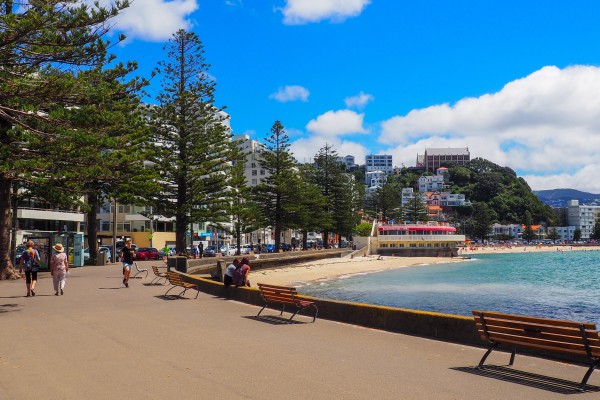
![How much do you need to earn to live comfortably in Auckland? [2025] How much do you need to earn to live comfortably in Auckland? [2025]](https://cdn.wisemove.co.nz/image/blog/a6c9fabaf213365fe94a9ab210681a2a.jpeg)
![Cost of Living in Auckland [2025] Cost of Living in Auckland [2025]](https://cdn.wisemove.co.nz/image/blog/28805ffa60ea06355c891852d714357e.jpeg)

